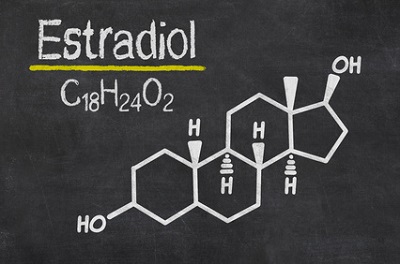Not only are a person’s sex hormones responsible for sexual development and functioning, but they are also involved in many other areas of health such as preventing heart disease, maintaining bone strength, and protecting memory and thinking. Women can also develop severe sexual complications from being without their sex hormones, which often results in painful sex. It is reasonable then that many women look for hormone replacement or supplementation when they are in menopause or perimenopause. Certainly, there are many men now getting testosterone supplementation, which is heavily promoted by the pharmaceutical companies. But when it comes to hormones, the term “bio-identical” remains one major area of confusion.
There is still quite a bit of controversy and confusion around the term bio-identical.
When it comes to the term bio-identical, there is a lot of conflicting information out there. This is the case because the idea of bio-identical often gets confused with compounded medications (when a medicine is specifically prepared to an exact dose by a pharmacist) and there is a lot of incentive for the pharmaceutical companies to create confusion. Some people trying to protect their interests have even gone so far as to say that bio-identical is a made up word. Well of course it is. All the words in our language were made up at one point or another to describe something that previously had no words to describe it.
What does bio-identical really mean when it comes to hormones?
Hormones have been used for decades for everything from replacement after surgery to hormonal contraception. Almost all of these preparations are molecules that are similar, but not exactly like the hormones that our bodies normally make. They work because a big chunk of the molecule can attach to the hormone receptor, but the rest of it is a different shape, size, and configuration than the natural hormone that the body makes. Bio-identical is a term that refers to those hormones that are identical in molecular structure to the ones the body makes. This means that the body uses them, metabolizes them, and eliminates them exactly like the ones that it makes on its own. For the most part, bio-identical hormones are still made in a lab and still prepared by big pharmaceutical companies. But when you compare the bio-identical hormones to synthetic ones, there are definite differences.
What does it mean to have compounded hormones?
For years, there were few preparations of bio-identical hormones available on the market, so many doctors would request that a compounding pharmacist prepare a precise combination in whatever way they needed (cream, gel, pill, etc.). More and more, pharmaceutical companies have made bio-identical hormones available in brand-name products, which are regulated and certified by the FDA. This allows for a higher level of standardization and quality control. Doctors can prescribe these medications as easily as they can any synthetic hormone preparation. It’s important to keep in mind that synthetic hormones can also be compounded into different preparations, so compounded doesn’t automatically mean bio-identical.
Bio-identical hormones have definite advantages over synthetic hormones.
It is well known that without hormone replacement, women who have either reached menopause or had their ovaries removed will experience more vaginal dryness, irritation, and urinary incontinence. They may also have decreased desire, decreased arousal, and decreased sensation and ability to orgasm. But sex hormones also play a significant part in overall health and functioning. When women have their ovaries removed, they are at greater risk for heart disease and heart attacks, dementia, osteoporosis and fractures, and Parkinson’s Disease. Actually, having your ovaries removed increases the chance of death from all causes, so those ovaries must be doing something. Synthetic hormones, which are still the major percent of hormones prescribed today, have documented increased risk for blood clots, heart disease, and even cancer. No such risks are present with bio-identical hormones. This is exactly why getting bio-identical hormones is so important. Not only do they decrease a woman’s risk for major illnesses, but also do not carry the same health risks as synthetic hormones. Hopefully, soon all doctors will understand this difference and use only bio-identical hormones in their practice.






Leave A Comment